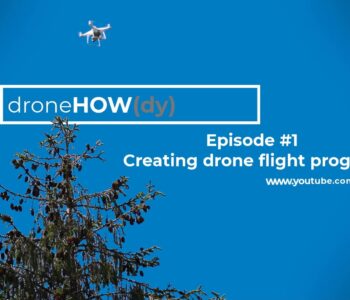
Academic excellence
To be able to support and use modern technology and teaching methodologies, I’m actively participating in various e-learning courses by myself (given by different institutions from all over the world). Some e-courses that I have recently and successfully taken are carried out by Adobe (link to profile). Adobe does have great train the trainer type courses, in where you are learning how to teach your fellow teachers. This falls into general e-learning category but I also encourage to learn through similar e-learning courses that falls into your professional area. For example, I have been participating in Digital Construction MOOC (given by University of Westminster and the B1M, link to open badge) to see how building information modelling is taught by other institutions and make conclusions and/or improvements in my delivery methods. I believe that if you participate in different e-learning courses by yourself, only then you start to understand what the heck is e-learning and how it can be used to motivate the students. Because you simply understand the learning side as well by participating yourself. So, being an active learner yourself, helps to understand the learner perspective and apply such knowledge into your own courses. Especially when you are teaching different learner groups (students, teachers, current real-world practitioners, etc.). My latest self-assessment summary can be found from Appendix B.
Having a background/experience of Education Technology Officer, I’m supporting various interest groups in terms of learners. My own experience in developing e-learning courses has made a great basis to deliver those skills to other teachers. Currently (started from 2017 – …) teaching Moodle as an e-learning environment as well as general active learning methods at each semester (can be also taken or retaken as a Moodle e-course in Estonian or in English).
Moodle general course that I’m conducting, helps to achieve university wide goal to have e-supported course for each compulsory subject at first- and second-degree study programs (bachelor, master level programs). E-supported course in here means that the course can have classical lecture/webinar program throughout the semester as well, but at the same time should include learner activation components and continuous feedback/grading system.
This is e-course is divided into key sections like: (a) e-support (e-course) resources; (b) e-support (e-course) activities; (c) advanced implementation of Moodle environment. And in 2021 there will be one additional module that explains how to set-up and carry out learning analytics in your course as seen in previous sections as well as some additional possibilities. This is developed under an operating grant of “Good teacher’s development program”.
The previous experience of such role (Education Technology Officer) also means that I’m involved in continuous e-learning related discussions that helps to achieve university visibility in terms of branded and openly available e-courses. I also have the experience of Moodle administration in my own Moodle web-server (www.bim-courses.com) which helps to discuss or to be an advisor for many e-learning based topics/projects, including participation in international collaborations (ERASMUS projects, project web pages etc.).
To support my knowledge in creating recognizable e-courses, “Building information modelling basics (BIM I)” has been awarded with the e-course quality label in 2019, “BIM for infrastructure (InfraBIM) basics” in 2020 and “Water Pipelines and Modelling” in 2021.
During my lecturing career I have been involved in various research projects as well. My main research has smoothly shifted from pipe networks into various BIM related research areas. There are interrelated research topics as well which includes both of them (hydraulics + BIM). Full list of research projects and articles is available in Estonian Research Information System (ERIS).
From the research side I’m actively participating as a reviewer for multiple internationally recognized scientific journals (the full list is available at ERIS) as well as belonging into local (EVS/TK50) and international technical committees (EC3, CCIC).
During my academic career my work has been awarded with several honours that are listed in Estonian Research Information System (ERIS). Through my professional experience and private sector combination I have been involved in several BIM teaching events as a trainer.
My professional background in terms of vertical and linear BIM topics has been widely presented in several international online trainings/meetings as well as for developing various course materials. Some of those courses are video based and freely available through my YouTube channel. The moderate list of subscribers to my channel shows the value of such video learning materials and has been a great opportunity for quite many to ask direct help/guidance through YouTube community. The list of developed training programs and respective content examples can be found from Appendices, text based training materials – Appendix C and video based training courses – Appendix D.









